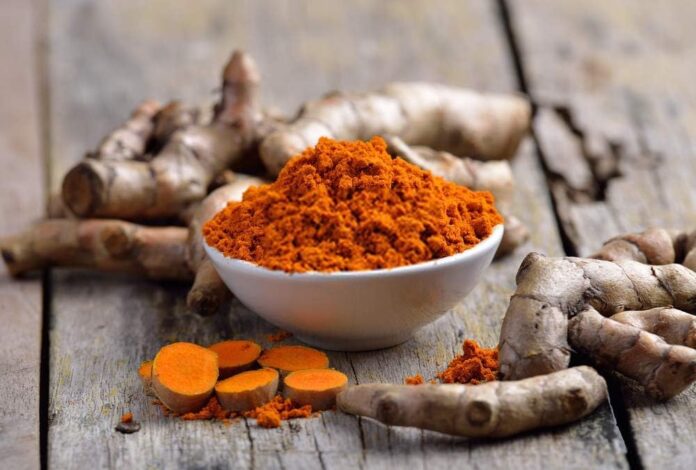
Introduction
Wild turmeric, also known as Amba Haldi, is a powerful, aromatic herb native to India and commonly used in traditional medicine for its wide range of therapeutic properties. It belongs to the ginger family, and although it shares some similarities with regular turmeric (Curcuma longa), it is a distinct variety with unique benefits. This article will explore the various forms of wild turmeric, its health benefits, and potential side effects.
Forms of Wild Turmeric
Wild turmeric is available in different forms to suit various applications. The most common forms include:
- Powder: Wild turmeric is often dried and ground into a fine powder, which is used in cooking, skincare products, and for medicinal purposes. This powder can be added to teas, smoothies, or used topically.
- Root: The raw root of wild turmeric resembles the common turmeric root but is smaller, with a slightly darker color. The root is often boiled or dried before being powdered or used for medicinal purposes.
- Oil: Wild turmeric oil is extracted from the plant’s roots. It contains active compounds that can be used for massage, aromatherapy, and for treating skin conditions.
- Extracts and Capsules: For those seeking a concentrated form of wild turmeric’s active ingredients, extracts and capsules are available in health stores. These supplements are commonly used for their medicinal properties.
- Fresh: In some regions, fresh wild turmeric root is used in cooking or for making pastes to treat skin ailments.
Benefits of Wild Turmeric (Amba Haldi)
Wild turmeric has been used for centuries in Ayurvedic and traditional medicine for its numerous health benefits. Some of the most notable benefits include:
1. Anti-inflammatory Properties
Wild turmeric contains curcumin, a potent anti-inflammatory compound that helps reduce inflammation in the body. It has been used to alleviate pain and swelling associated with arthritis, injuries, and other inflammatory conditions.
2. Antioxidant Power
The antioxidants present in wild turmeric help neutralize harmful free radicals in the body, reducing oxidative stress and protecting cells from damage. This contributes to better skin health, a stronger immune system, and a reduced risk of chronic diseases.

3. Digestive Health
Wild turmeric is known for its digestive benefits. It aids in the production of bile and helps in the digestion of fats. It has also been used to treat digestive disorders such as indigestion, bloating, and constipation.
4. Skin Health
Wild turmeric is renowned for its skin benefits, particularly in treating skin conditions like acne, eczema, and psoriasis. It has natural antiseptic, antimicrobial, and healing properties. The powder or paste can be applied topically to wounds and scars to promote faster healing and to reduce pigmentation.
5. Liver Detoxification
Wild turmeric has detoxifying properties, making it beneficial for liver health. It helps cleanse the liver by flushing out toxins, reducing the burden on this vital organ, and promoting better overall health.
6. Anti-Cancer Potential
Some studies suggest that wild turmeric has anti-cancer properties due to its high curcumin content. It may help slow the growth of cancer cells and reduce the spread of tumors, though more research is needed in this area.
7. Boosts Immunity
Wild turmeric is considered a natural immunity booster. It helps strengthen the immune system by enhancing the body’s ability to fight infections and diseases. Regular consumption may reduce the risk of illnesses like colds, flu, and respiratory infections.
8. Improves Skin Complexion
Used as a face mask or in skincare products, wild turmeric is said to lighten the skin tone, reduce pigmentation, and give the skin a healthy glow. It is widely used in beauty treatments to promote flawless skin.
Side Effects of Wild Turmeric (Amba Haldi)
While wild turmeric has numerous health benefits, it may cause side effects if used improperly or in excessive amounts. Some of the common side effects include:
1. Gastrointestinal Issues
In some individuals, excessive consumption of wild turmeric may cause gastrointestinal discomfort, including bloating, gas, or an upset stomach. It’s important to use it in moderation, especially for people with sensitive digestive systems.

2. Allergic Reactions
Though rare, some individuals may experience allergic reactions to wild turmeric. Symptoms may include skin rashes, itching, or swelling. It is advisable to perform a patch test before using it topically.
3. Blood Thinning
Curcumin, the active compound in wild turmeric, can have a blood-thinning effect, which may interfere with blood clotting. People who are on blood-thinning medications or have bleeding disorders should consult a healthcare professional before using wild turmeric.
4. Pregnancy and Breastfeeding
Wild turmeric is not recommended during pregnancy or breastfeeding, as its effects on pregnancy have not been fully studied. It is best to avoid large quantities or supplements during this time unless directed by a healthcare provider.
5. Interactions with Medications
Wild turmeric may interact with certain medications, such as those used for diabetes, high blood pressure, or blood thinners. It may alter the effectiveness of these medications, so it’s essential to consult a doctor before taking wild turmeric supplements or using it as a remedy.
6. Skin Sensitivity
When applied topically, wild turmeric may cause skin irritation in some people, particularly those with sensitive skin. It’s important to dilute it with a carrier oil or patch test before applying it extensively.
This Article is for Basic Information. Contact a professional doctor before using it.
HAKEEM KARAMAT ULLAH
+923090560000




